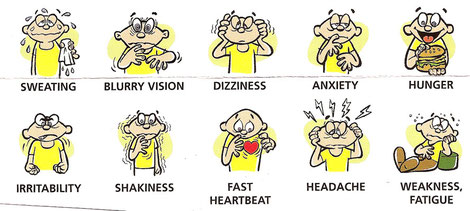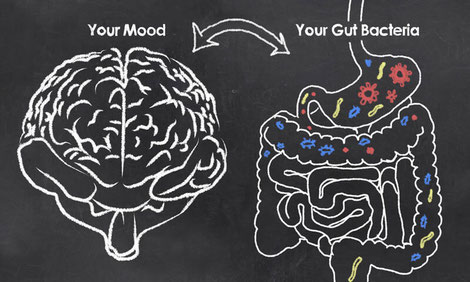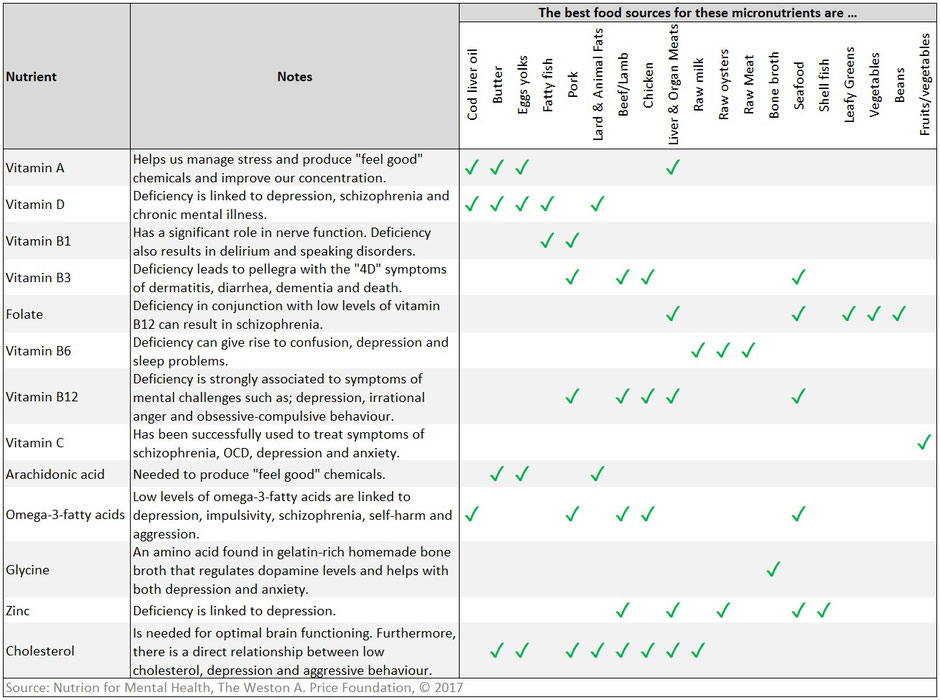
A lot of people still think that the food they eat has little to do with their mental and emotional wellbeing. However, many studies have demonstrated that nutrient deficiencies impair how we think, feel and behave. Our brains and nervous systems are, of course, essential parts of our physical bodies that need relevant nourishment similar to other organs. With a vibrant body and mind we can produce the endorphins and other chemicals necessary to have a positive mindset to feel happy, healthy and productive. These “feel good” chemicals do not just help us to perform effectively in our day to day lives but also, help people who have suffered from mental and emotional challenges such as financial and relationship stress.
Low blood sugar

A critical component in managing mental challenges is low blood sugar (hypoglycemia). When your blood sugar drops below normal levels, we can feel anxious, nervous, depressed and angry. Bingeing regularly on sugar filled foods not only causes blood sugar swings and constant dives into low blood sugar territory it also, repeatedly releases dopamine, a “feel good” chemical, in the brain. This ultimately leads to fewer dopamine receptors and a demand for larger quantities of sugar to feel good. To avoid experiencing the negative effects of blood sugar level drops, it is vital to eat good quality animal protein and fat at each meal and to not skip meals.
Vegetarian diet
A vegan or vegetarian diet generally lacks essential micronutrients that support mental and emotional health. These micronutrients are vitamin, A, D and B12 and minerals like zinc and iron. In addition, vegetarian diets often lack the full spectrum of amino acids required to fuel happy brain chemicals such as serotonin and dopamine. Research has shown that vegan and vegetarians are more inclined to suffer more from depression and anxiety than those who include animal produce in their diets. That doesn’t mean to say that we advocate eating copious quantities of meat but a little can go a long way. However for those that are avoiding animal protein completely they need to be expertly food combining to ensure a full spectrum of bioavailable amino acids in adequate quantities in order to minimise health issues.
Vegetarians and vegans are generally low on the vitamins, minerals and fatty acids that are vital for proper neurological function and hence, are more prone to depression.
The gut-brain connection

We have millions of beneficial gut flora (friendly bacteria living in our gastrointestinal tract) that generate “feel good” substances that support proper cognitive functioning. However, when the intestinal tract is congested with an overgrowth of fungus and parasites, these microorganisms produce neurotoxins that lead to everything from attention deficit disorder (ADD) to depression. Furthermore, when the gut membrane is “leaky”, meaning there are microscopic holes in the membrane, undigested proteins and toxins enter the bloodstream. This triggers inflammation in the brain which then results in, brain degeneration and symptoms of mental challenges (depression, anxiety, chronic fatigue and more).
More often than not, a return to stable mental health involves incorporating foods into your diet that can heal the gut and repopulate the digestive tract with friendly microorganisms. Lacto-fermented foods (e.g. organic kombucha, kefir, sauerkraut, beet kvaas) and glutamine rich bone broth can help heal the gut to repopulate the gastrointestinal tract with good bacteria. It would also be a good idea to stay clear of antibiotics (unless essential), chlorinated and fluoridated tap water, and concentrated sweeteners that can damage favourable gut bacteria.
Nutrition deficiencies and mental illness




Write a comment